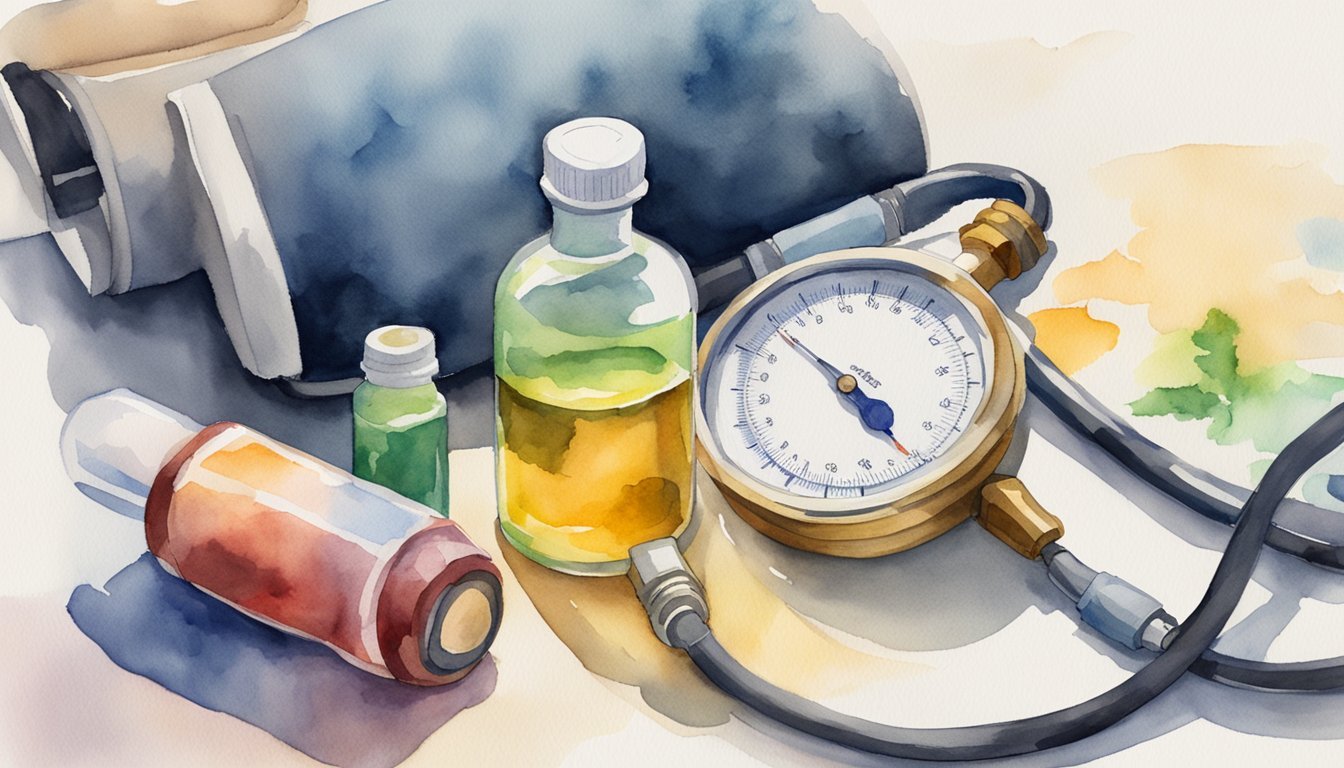Understanding THC’s Impact on Blood Pressure
As the legalization of cannabis progresses, understanding the relationship between THC, the main psychoactive component of marijuana, and cardiovascular health is crucial, particularly its effects on blood pressure and heart rate.
Overview of THC and Cardiovascular System Interactions
Tetrahydrocannabinol (THC), when introduced into the body, interacts with the cardiovascular system in complex ways.
These interactions are mediated through the endocannabinoid system, which includes receptors such as CB1 and CB2 found in heart tissues and blood vessels.
Research indicates that THC can have a vasodilatory effect, leading to the relaxation of blood vessels and potentially lowering blood pressure.
However, this effect might be coupled with an increase in heart rate, a reaction also known as tachycardia.
Interaction with these receptors suggests why THC can influence cardiovascular dynamics, with both therapeutic and adverse consequences depending on individual health statuses and the presence of cardiovascular conditions like hypertension or heart disease.
Differences Between Acute and Chronic Effects on Blood Pressure
The acute impact of THC on blood pressure is characterized by immediate, short-term changes after consumption.
Smoking marijuana can result in a brief period of increased blood pressure and heart rate.
This response could pose risks for those with existing heart conditions, potentially leading to cardiovascular events such as myocardial infarction.
Conversely, a study exploring THC’s cardiovascular effects over time suggests a blood pressure reduction in older adults with hypertension after prolonged use.
In contrast, chronic effects reflect the long-term outcome of regular THC consumption.
Insights into long-term effects are less clear, with some studies pointing to a lower risk of hypertension in regular users, while others hint at potential cardiovascular risks including heart attacks and stroke.
Specifically, frequencies and doses become significant factors here, with higher consumption possibly leading to greater cardiovascular strain.
Further research is essential to clarify the complexities of THC’s chronic effects on the cardiovascular system, particularly considering confounding factors like the method of cannabis consumption and individual health variables.
Therapeutic Implications and Legality of THC Usage

As the medical community continues to explore the effects of THC on conditions such as high blood pressure and chronic pain, the question of its legal status remains a key concern for patients and healthcare providers alike.
Medical Benefits and Side Effects of THC
Tetrahydrocannabinol (THC), the psychoactive compound in cannabis, has been identified to have several therapeutic effects.
Studies point out that medical marijuana can potentially reduce the symptoms of chronic pain, nausea, and vomiting, particularly in chemotherapy and AIDS patients.
Additionally, evidence suggests medical cannabis might assist with lowering blood pressure in older adults with hypertension.
However, the side effects of THC can vary.
Commonly reported issues include changes in heart rate, potential for increased risk of stroke and heart attack, and short-term memory impairment.
Moreover, the cardiovascular effects of THC can be complex, with some individuals experiencing an increase in heart rate shortly after consumption, while others may see a longer-term decrease in blood pressure.
Concerns have been raised about the impact of marijuana smoking on heart health due to the presence of harmful substances similar to those found in tobacco smoke.
Legal Status and Regulatory Concerns for THC Products
The legal status of THC varies by jurisdiction, presenting a complex patchwork of regulations.
In the United States, cannabis has been legalized for medicinal purposes in many states, yet remains a Schedule I substance under federal law.
This discrepancy poses challenges for accessing and researching medical marijuana and its derivatives like CBD (cannabidiol).
Regulatory agencies like the FDA have approved synthetic THC products such as dronabinol and nabilone for therapeutic use in specific conditions, including anorexia associated with weight loss in AIDS patients and nausea and vomiting caused by chemotherapy.
Meanwhile, the FDA-approved CBD drug Epidiolex is used to treat seizures associated with certain forms of epilepsy, demonstrating the recognized medicinal value of cannabinoids.
Despite the progress in legalization, there’s an overarching need for more comprehensive clinical trials to ascertain the full range of therapeutic benefits and risks associated with chronic THC use.

